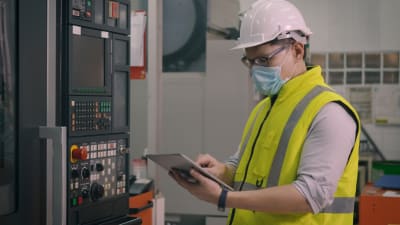Flexibility is one of the best parts of starting an automotive mechanic career in Virginia. Not only can professionals in this field specialize in specific vehicle parts, but they can also specialize in specific manufacturers, from Ford, Subaru, Toyota, and Honda to Chrysler, Jeep, and more.
The guide on this page aims to introduce candidates to all of the major requirements they will need to follow to become successful auto mechanics in Virginia. We have broken down the process into easily digestible steps, focusing on key aspects, including certification and education.
Before they are done reading, candidates will understand the educational options, the state’s best programs, possible salary projections, and career outlook for auto mechanics in Virginia over the coming decade.
How to Become an Auto Mechanic in Virginia
Below are the steps that candidates take to become successful auto mechanics in Virginia.
Early Considerations
Several training options are available to prospective automotive mechanics in Virginia. These include apprenticeship programs, academic programs, and on-the-job programs.
Candidates must familiarize themselves with these options and choose the best one. Of course, it is also possible to combine options.
Additionally, most of these training destinations expect applicants to have a high school diploma or GED before their applications can be favorably considered.
Combining Classroom and Hands-On Training
The most common and most effective approach to starting an automotive mechanic career is to combine classroom training and hands-on training. Candidates do that by participating in two or more of the training arrangements listed above.
For instance, a common option is earning a degree from an academic program and then participating in an internship, during which students work at dealerships and mechanic workshops.
Some may also participate in apprenticeship programs for years before securing full-time employment.
Explore trades with similar paths:
Licensure & Certification Requirements
To become a professional automotive mechanic in Virginia, you do not need a license or certification from a professional organization. However, unlike licensure, professionals in the state still pursue certification because it can help with career opportunities.
For instance, certified automotive mechanics in a particular specialty may develop a network and help each other facilitate career growth. Additionally, most of these credentials require continuing education, helping professionals acquire advanced skills and improve as the year progresses.
In Virginia and across the country, the National Institute for Automotive Service Excellence stands out thanks to its array of high-quality, nationally recognized credentials in several specialty areas. Candidates are strongly advised to apply to the institute and pass an examination to earn a license in their chosen specialty.
The ASE has credentials in suspension and steering, auto maintenance and light repair, school buses and trucks, air conditioning, computerized engine control systems, and ignition systems, among other things.
Top Auto Mechanic Schools in Virginia
The following are among the most accomplished training programs for aspiring auto mechanics in Virginia.
Northern Virginia Community College
Alexandria, VA Campus Only
Northern Virginia Community College's certificate programs in automotive technology is a great choice for those who would like to start their career on a fast-tracked path.
Tuition
$190 - $381 per CreditContact
(703) 323-3000
information@nvcc.edu
New River Community College
Dublin, VA Campus Only
New River Community College's Automotive Analysis and Repair is another gear option for prospective auto mechanics in Virginia.
Tuition
$158 - $352 per CreditContact
(540) 674-3600 Ext: 4328
sdenis@nr.edu
Virginia Peninsula Community College
Hampton, VA Campus Only
Lastly, Virginia residents may consider the Certificate program in Automotive Technology offered by Virginia Peninsula Community College.
Tuition
$165 - $354 per CreditContact
(757) 825-2700
admissions@vpcc.edu
Explore auto mechanic schools in Virginia by city:
Salary & Career Outlook
Anyone beginning their auto mechanic career in Virginia can expect to earn an annual average salary of around $46,324- $72,961. The first figure is more pertinent to those among the bottom earners, while the second figure is more relevant to the state’s median earners.
Consequently, this leaves room for candidates to eventually make it to the top 10 percent of the highest-paid. Once they reach this level, they can take home an annual average salary as high as $114,916 or even more.
Experience, location, credentials, and employment capacity are some factors that help candidates move from the lowest-earning category to the higher-paying category.
Concerning specific locations, Portsmouth currently has the distinction of being the highest-paying city for auto mechanics in Virginia. The city rewards professionals in this field with an annual average salary of $97,209.
Other notable locations include Manassas, with an annual average salary of $85,595, and Sterling, with an annual average salary of $83,152.





